To provide the best experiences, we use technologies like cookies to store and/or access device information. Consenting to these technologies will allow us to process data such as browsing behaviour or unique IDs on this site. Not consenting or withdrawing consent, may adversely affect certain features and functions.
The technical storage or access is strictly necessary for the legitimate purpose of enabling the use of a specific service explicitly requested by the subscriber or user, or for the sole purpose of carrying out the transmission of a communication over an electronic communications network.
The technical storage or access is necessary for the legitimate purpose of storing preferences that are not requested by the subscriber or user.
The technical storage or access that is used exclusively for statistical purposes.
The technical storage or access that is used exclusively for anonymous statistical purposes. Without a subpoena, voluntary compliance on the part of your Internet Service Provider, or additional records from a third party, information stored or retrieved for this purpose alone cannot usually be used to identify you.
The technical storage or access is required to create user profiles to send advertising, or to track the user on a website or across several websites for similar marketing purposes.
 Earlier this month the ONS (Office for National Statistics) released a rather dismal map of the UK charting our population’s soaring levels of loneliness. Perhaps surprisingly, it is young people and those living in urban areas reporting the highest levels of aloneness. It really does go to show that the ‘social’ in social media doesn’t mean very much, and that you can indeed be surrounded by others and still feel lonely. So what does this new study mean for employers, if anything? (more…)
Earlier this month the ONS (Office for National Statistics) released a rather dismal map of the UK charting our population’s soaring levels of loneliness. Perhaps surprisingly, it is young people and those living in urban areas reporting the highest levels of aloneness. It really does go to show that the ‘social’ in social media doesn’t mean very much, and that you can indeed be surrounded by others and still feel lonely. So what does this new study mean for employers, if anything? (more…)







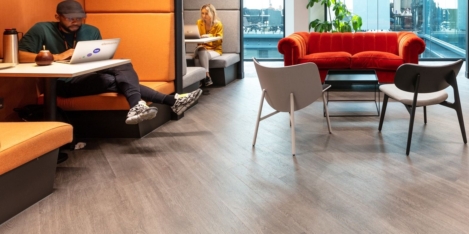
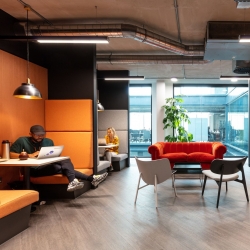 Hybrid working runs the risk of becoming a blanket term, interpreted on a very surface level, when it has the potential to offer a much greater opportunity for businesses to open up and re-examine the culture and experience of their staff, alongside where they want to take their business in the future, as well as fast-tracking mental health and wellbeing to play a central role in workplace strategy.
Hybrid working runs the risk of becoming a blanket term, interpreted on a very surface level, when it has the potential to offer a much greater opportunity for businesses to open up and re-examine the culture and experience of their staff, alongside where they want to take their business in the future, as well as fast-tracking mental health and wellbeing to play a central role in workplace strategy. 
 No sooner had the world learned about the existence of
No sooner had the world learned about the existence of 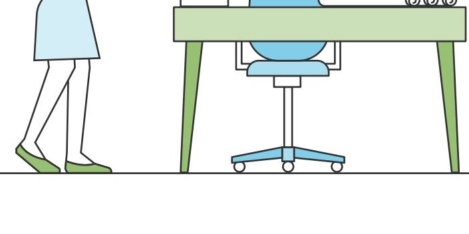
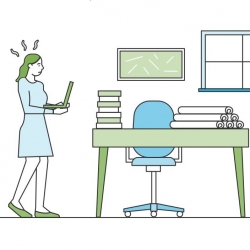 Glint’s latest insights report shows that there is a worrying increase in employees experiencing challenges with their mental health, with burnout risk trending upwards year-over-year. That spiked in late March 2020 and climbed by nearly 4 percent between August and December 2020. That’s not a big surprise, given the first challenging months of the global pandemic. Paradoxically, employees say that despite feeling burnt-out, they also feel happier at work at the end of a year of lockdown than they did at the start. Is this some sort of contradiction—or evidence of something very encouraging about the state of HR?
Glint’s latest insights report shows that there is a worrying increase in employees experiencing challenges with their mental health, with burnout risk trending upwards year-over-year. That spiked in late March 2020 and climbed by nearly 4 percent between August and December 2020. That’s not a big surprise, given the first challenging months of the global pandemic. Paradoxically, employees say that despite feeling burnt-out, they also feel happier at work at the end of a year of lockdown than they did at the start. Is this some sort of contradiction—or evidence of something very encouraging about the state of HR? 
 A year of unnecessarily binary conversation about work leads inevitably to this. A stupid question.
A year of unnecessarily binary conversation about work leads inevitably to this. A stupid question. 
 It is now a truism that society expects more of business than merely maximising shareholder value.
It is now a truism that society expects more of business than merely maximising shareholder value. 


 As the world emerges from the grip of the pandemic, the
As the world emerges from the grip of the pandemic, the 
 Many organisations make bold claims about their zero carbon ambitions. Even if they don’t, most have sustainability statements. Yet the environmental impact of office furniture and sophisticated approaches to sustainable office design seem to be way down the ‘pecking order’. During the last year, we have read considerable commentary about the office – starting with its death but moving onto predictions of the ‘new dawn’ with more versatile and healthier workspaces.
Many organisations make bold claims about their zero carbon ambitions. Even if they don’t, most have sustainability statements. Yet the environmental impact of office furniture and sophisticated approaches to sustainable office design seem to be way down the ‘pecking order’. During the last year, we have read considerable commentary about the office – starting with its death but moving onto predictions of the ‘new dawn’ with more versatile and healthier workspaces. 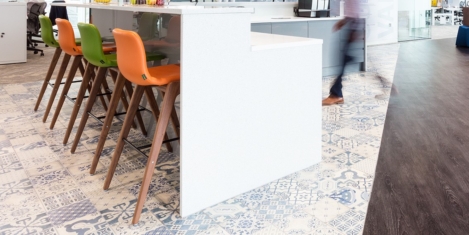
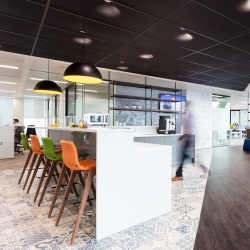 You may have heard it said that any idea repeated often enough develops some form of legitimacy. We’ve had plenty of reason to reflect on whether this notion is true or nor over the past year, especially as all-encompassing pronouncements about the future of work have proliferated and intensified. The problem is exacerbated by the fact that around 80 percent of people
You may have heard it said that any idea repeated often enough develops some form of legitimacy. We’ve had plenty of reason to reflect on whether this notion is true or nor over the past year, especially as all-encompassing pronouncements about the future of work have proliferated and intensified. The problem is exacerbated by the fact that around 80 percent of people 
 If I were to suggest that organisations were designing their processes, policies and relationships with unkindness at the core, you would probably reject it as an illogical proposition, it just doesn’t make business sense. It goes against the grain and against the values that are plastered on the walls of so many organisations. But as counterintuitive as it may seem, in my opinion, many organisations have done just that, designed unkindness into the things they do, albeit inadvertently. But if they can do that, they can also design kindness in too.
If I were to suggest that organisations were designing their processes, policies and relationships with unkindness at the core, you would probably reject it as an illogical proposition, it just doesn’t make business sense. It goes against the grain and against the values that are plastered on the walls of so many organisations. But as counterintuitive as it may seem, in my opinion, many organisations have done just that, designed unkindness into the things they do, albeit inadvertently. But if they can do that, they can also design kindness in too. 








April 27, 2021
The hybrid workplace sagas, part one. Ginnungagap
by Neil Usher • Comment, Flexible working
“Morning Clara. You mean the Team-Rostered Attendance Programme. It’s fantastic – we have control at last!”
“Wow, I’m jealous. I guess you all just fell into it?”
“Yeah. How did you know?”
“Just a hunch. So how does it work?” (more…)